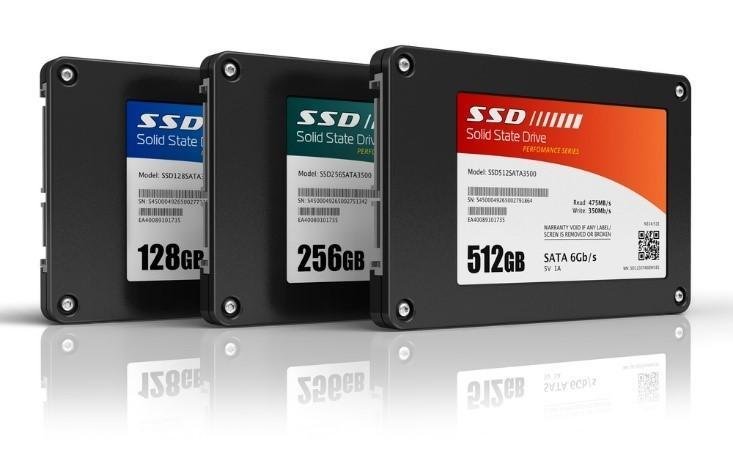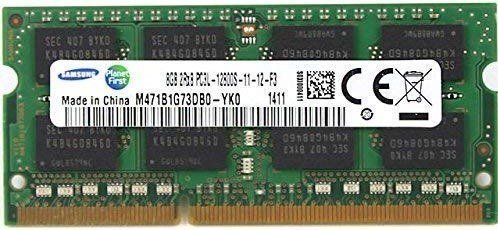Spinning wheel of death?
Ridiculous lag and long delays?
If your slow computer is driving you nuts then instead of ditching it for a new one, there are some cost-effective ways to inject some new life into an old friend.
There are a few different ways to speed up a slow computer. Some you may be able to do yourself but for others you may need the help of a professional.
Hack #1: Swap your Hard Disk Drive (HDD) for a Solid State Drive (SSD)
This single change will make the biggest difference to your computer’s speed. A slow computer on its last legs will suddenly spring back into life.
An HDD is old technology. It has a spinning disk that contains all your programs and data and a read/write head that moves mechanically. Think about the old record players from the 70's and you'll get the idea.
An SSD is like a big thumb drive. It has no moving parts and is 10 times faster than an HDD.
At the time of writing a 128Gb SSD will set you back around $90. A 1Tb (1,024Gb) SSD costs less than $300.

A qualified computer tech can clone (copy) the contents of your existing HDD (Hard Disk Drive) to the new SSD (Solid State Drive) and then simply insert the new drive into the computer.
Your previously slow computer will suddenly seem like a completely different machine. It will operate exactly the same, but a LOT faster.
The entire job will take less than an hour and the tech will probably charge around $100.
For a total investment of less than $200 for the new drive and the tech's time, is a lot less than buying a new computer. Plus you won't have to reinstall all the software you use, re-establish connections to cloud drives or remove all the bloatware that comes pre-installed.
Hack #2: Boost your RAM
Increasing your memory (RAM) gives your computer some breathing space to do what it needs to do.
A typical computer will have 4Gb or 8Gb of RAM.
Bumping up your RAM to the maximum that your computer is capable of will help speed it up and make a noticeable difference..
At the time of writing, 8Gb of RAM will cost around $120) and 16Gb will cost around $240.

If you are able to remove the back case from your computer, this is something you can do yourself. Don't attempt it with Apple computers. If in any doubt, ask a professional.
With the back off, look for the RAM chips. They will look something like the image above. Most are green. Carefully open the tension clips on each side and remove one RAM chip. It should slide out if you wiggle it gently.
Removing the RAM chips will not damage your computer in any way.
The label will tell you the size of the memory and the particular configuration. With this information, you can order some larger RAM chips from sites like eBay or another online computer retailer.
RAM chips come in all kinds of shapes and sizes so double-check that the one you are buying matches what you have. Many sites let you put in your particular computer model and will check for compatibility and tell you the maximum RAM that the computer can handle.
With the newly purchased RAM chips in hand, remove the existing RAM and insert the new RAM. Make sure they sit tight.
Power up the computer. You won't see any visual difference but the performance will improve.
Remember, if you are in any doubt, hire a professional to do it for you.
Hack #3: Run a Registry Cleaner
Your computer has a registry.
It’s like an index of everything on your computer and its current status.
Every time you add or delete a program or file an entry is added to the registry.
The registry only ever gets bigger, never smaller. Over time it gets so bloated and obese that your slow computer gets slower and takes forever to process the simplest of tasks.
A registry cleaner does an audit and decides what to keep and what needs to go. It only takes a few minutes.
The first time you run a cleaner is when you’ll see the biggest change. After that, you should run the cleaner every month to keep your system streamlined.
There are many registry cleaners to choose from.
A good free registry cleaner is Ccleaner (non aff).
Hack #4: Do a defrag
Defrag is short for defragment.
You would think that whenever you save a new file, your computer would find the next available space on the drive and store it there.
Unfortunately it's not that simple.
Let’s say you have a 20 Mb file. Sometimes your computer will see a 5Mb empty slot and put the first part of the file there. Then it will see another 5Mb empty slot and store the next part of the file there. Then it spots a 10Mb slot and puts the last part of the file there. With some dark magic, the computer keeps track of how each part links to the next.
A defrag will collect together the various file pieces and store them together in one location.
And it will sweep through your entire drive doing this for each file.
Considering there are tens of thousands of files on your computer (not just your saved files but all the system files needed to run your computer), a defrag can take several hours to run.
That’s fine. Set it going at night and check it in the morning.
And run a defrag every 3-6 months.
To run a defrag:
1. Click the Start button (at the bottom-left-of your screen).
2. Without clicking anything, type 'defrag' (without the quotes).
3. Choose Defrag and optimize drives.
4. Click the Optimize button.
Hack #5: Do your own housekeeping regularly
Perhaps one of the most obvious things you can do to avoid owning a slow computer is your own housekeeping.
I’m a big fan of chucking stuff out.
- If I haven’t worn it, used it or read it within the last year, it often goes.
Same thing for your files.
- Start with your desktop and then dig into your folders.
Do you really need to keep it? No? Then ditch it.
Do you really need to keep all 10 of these pictures (or videos) that are nearly identical?
Do you have duplicates (or near duplicates) of the same document?
Can you create additional folders to organise your files better?
Get on top of it, then stay on top of it.
I hope you found plenty of value in this post. I'd love to hear your biggest takeaway in the comments below together with any questions you may have.
Have a fantastic day.


About the author
Jason Morrell
Jason Morrell is a professional trainer, consultant and course creator who lives on the glorious Gold Coast in Queensland, Australia.
He helps people of all levels unleash and leverage the power contained within Microsoft Office by delivering training, troubleshooting services and taking on client projects. He loves to simplify tricky concepts and provide helpful, proven, actionable advice that can be implemented for quick results.
Purely for amusement he sometimes talks about himself in the third person.
SHARE

